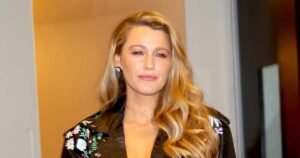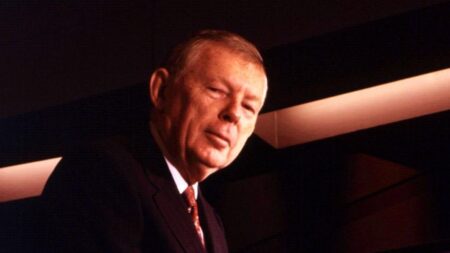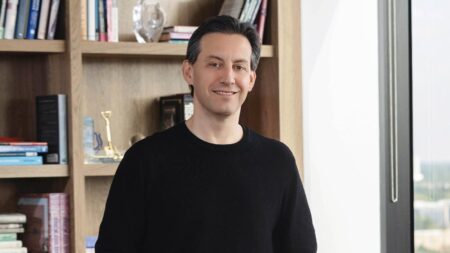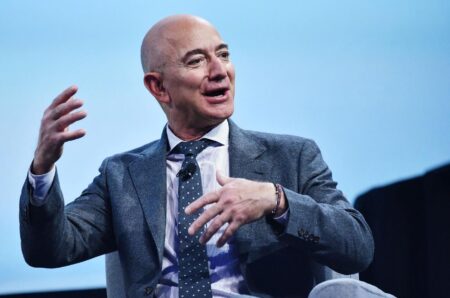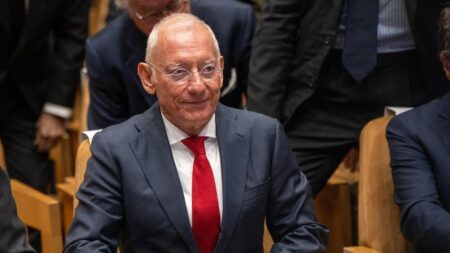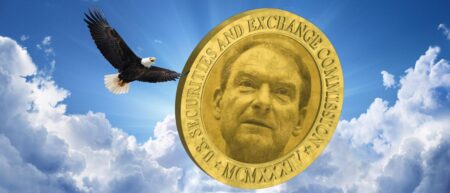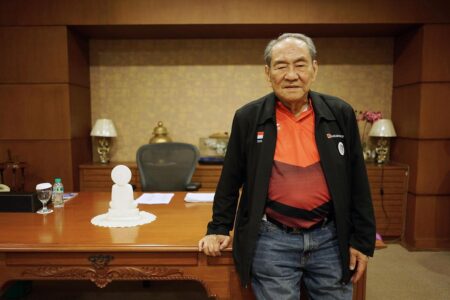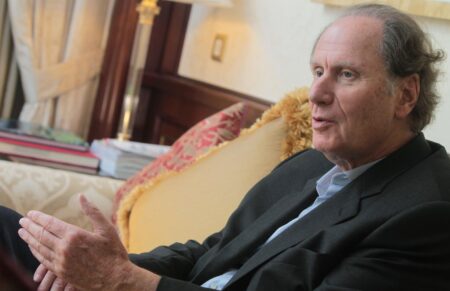This holiday season, America’s billionaires have a lot to be thankful for. With the stock market riding high, there are a record number of them, and they’re richer and more powerful than ever.
It seems like luck is forever in their favor these days, but quite a few didn’t start out that way. While plenty of these moguls were born rich or had big head starts in life through family connections, dozens of others came from little to nothing—true rags-to-riches stories that show just how far someone can go in one generation.
Take Frank VanderSloot, founder of the wellness company Melaleuca, who spent his childhood working on a farm in Idaho and could only afford college by living in a laundromat. “My folks didn’t have much money, but I was very excited when I was about eight and my dad brought me home a cardboard box with holes in it—so I knew something was alive,” VanderSloot once told Forbes, recounting his favorite childhood Christmas gift. “There was a pigeon inside! He worked on the railroad, so he had caught it and brought it home.” Now VanderSloot is worth an estimated $3.2 billion, a fortune that—if liquid—could buy a pet pigeon for every child in the United States.
Oprah Winfrey shares a high-profile roundup of holiday gift ideas in her annual “Favorite Things” list. But when she was a kid living with her single mother on welfare, presents were far from guaranteed. Winfrey learned that Santa Claus didn’t exist when she was 12 and her mom told her they couldn’t afford to celebrate Christmas that year, she once said on her eponymous talk show. She remembers dreading the moment she’d have to tell her peers that she didn’t receive a single gift. But when a few nuns showed up to her house unexpectedly to offer food and a doll, it became the best Christmas of her life. Winfrey, now worth an estimated $3 billion, has tried to repay the favor by donating toys to tens of thousands of disadvantaged kids.
VanderSloot and Winfrey are hardly the only billionaires whose childhood Christmases, Hanukkahs and other holidays were humble. In honor of the aspirational spirit of the holidays, Forbes is recounting 10 tales of billionaires who grew up more like Tiny Tim than Mr. Scrooge.
NET WORTHS ARE AS OF DECEMBER 27, 2024
Harold Hamm
Net Worth: $18.5 billion
Hamm was one of 13 siblings born to poor sharecroppers in Oklahoma. As a kid, he helped out the family by picking cotton barefoot and then got a job at a gas station at age 16. That sparked his interest in oil and gas, and led him to start a trucking business transporting water to oilfields. In 1967, he founded Continental Resources, which now produces 400,000 barrels’ worth of oil and gas per day. Hamm took the company private in 2022 in a $27 billion transaction.
Jan Koum
Net Worth: $16.4 billion
Koum grew up in a house without hot water in a rural village near Kiev, Ukraine. When he was 16, he migrated to California with his mother, who supported them with babysitting jobs and then a disability allowance when she got cancer (Koum also earned money as a grocery store cleaner). He went on to found the instant messaging company WhatsApp, which he sold to Facebook for $19 billion in 2014. He inked the deal on the steps of the social services office where he’d once collected food stamps.
David Steward
Net Worth: $11.4 billion
Growing up in the 1950s in segregated Missouri, his father supported him and his six siblings as a trash collector, mechanic and janitor. The early days of his technology solutions company World Wide Technology company—which he founded in 1990—were difficult too, with him forgoing paychecks and even watching from the office parking lot as his car got repossessed. Today, WWT generates $20 billion in annual revenue and Steward is the richest Black person in the United States.
Igor Olenicoff
Net Worth: $8.3 billion
The son of czarist-connected parents who fled Russia under the Bolshevik takeover, Olenicoff grew up in Iran. His family moved to the United States in 1957 with four suitcases, which were robbed of anything valuable during their first night in the new country. His mother and father got jobs as a housekeeper and janitor, respectively, while he found work at a hardware store. Now Olenicoff owns a real estate empire with 8 million square feet of office space and more than 17,000 residential units across the United States.
Gail Miller
Net Worth: $4.4 billion
Miller was born the sixth of nine kids right after the Great Depression, into a family with so few means they had just one lightbulb and had to move it from room to room. She and her husband (d. 2009), a former parts manager at Toyota, turned a single Toyota dealership into one of the largest auto dealer networks in the country. She then sold it to Asbury Automotive for $3.2 billion in 2021. Now she owns the investment firm Larry H. Miller Group.
Bob Parsons
Net Worth: $3.9 billion
Parsons grew up poor in inner city Baltimore. His mother was a homemaker who suffered from mental illness; his father was a furniture salesman for Montgomery Ward. Both were hardcore gamblers. “Cards, horses, bingo—you name it,” Parsons once told Forbes. “You don’t have a lot of money if you’re a gambler, particularly if you don’t start with lots of it.” After struggling in school and nearly failing 12th grade, Parsons joined the Marines and went to Vietnam. He returned with four medals, including the Purple Heart, and PTSD. He went on to make a fortune with the GoDaddy web hosting firm, which he later sold. He owns golf club brand PXG, motorcycle dealerships and commercial real estate, and has given millions to help veterans.
David Murdock
Net Worth: $3.7 billion
Murdock’s father and mother made inconsistent income as a traveling salesman and laundress when he was a kid, and by age 14, Murdock, who was dyslexic, had dropped out of school and was taking care of himself. He worked at and lived above a gas station, then was drafted into World War II. When he returned, he borrowed $1,800 to open a diner, then started investing in real estate and eventually buying up companies, including Castle & Cooke, which owned fruit and vegetable producer Dole Food. Today, the 101-year-old is an advocate for healthy eating (he mostly eats vegetarian) and is obsessed with longevity; he hopes to hit age 125.
Howard Schultz
Net Worth: $3.3 billion
When Schultz was 7, his dad, a cloth diaper delivery driver, fell on the job; he had no insurance or salary. He grew up in a Brooklyn housing project where he says his family couldn’t always afford the rent. Schultz wrote in a 2019 autobiography that he paid his way through Northern Michigan University by working as a bartender and sometimes selling his blood. In the 1980s, he took over Starbucks—then a regional coffee chain with less than a dozen stores—and expanded it into an international behemoth with over 40,000 locations today.
John Paul DeJoria
Net Worth: $3 billion
DeJoria remembers his single mother telling him once when he was attending junior high in downtown LA in the 1950s that the family only had 27 cents to their name. He’s been twice homeless and living out of his car, including when he cofounded the shampoo company John Paul Mitchell in 1980 with his life savings of $700. It now offers over 100 hair and styling products in more than 80 countries. DeJoria also bought a stake in Patrón Spirits in 1989 and sold it to Bacardi for $5.1 billion in 2018.
Rihanna
Net Worth: $1.4 billion
The pop star’s childhood in Barbados was marked by difficulties, particularly because her father—who sold clothes in a street stall—suffered from drug and alcohol addiction. Her stress manifested itself in regular migraines that were so painful doctors suspected a tumor might be causing them. After wowing music producer Evan Rogers in an audition, she’s gone on to release eight platinum studio albums. Thanks to her cosmetics line Fenty Beauty, which she co-owns with French retailer LVMH, she’s now one of the richest female musicians in the world.
Read the full article here



